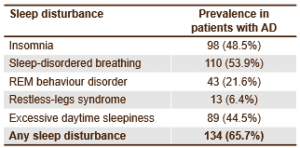Learn About How A Hospital Bed Improves Sleep Conditions For Alzheimer's Patients
Why Might Alzheimer’s Patients Need A Hospital Bed?
As we grow older, the brain naturally shrinks; it’s a process that occurs even in healthy aging. However, the brain does not lose neurons in large numbers. Alzheimer’s disease is a form of dementia that develops when damage to these neurons becomes so widespread that they lose the ability to communicate with one another. The breakdown of connections typically starts in the hippocampus and entorhinal cortex, the areas of the brain involved in memory.
The most common symptoms are:
- Memory loss
- Disorientation
- An inability to communicate, recall words, or speak
- An inability to perform daily tasks, including personal care
- Changes in mood and disposition
- Balance issues
- Changes in appetite
Because Alzheimer’s is a progressive illness, the symptoms may appear slowly and worsen over time. Since there is no single test to determine if someone has dementia, doctors rely on a careful medical history examination, a physical examination, testing and the diagnosis of various symptoms.
People with dementia and advanced cases like Alzheimer’s are likely to become confused and disoriented, even in places that would otherwise be familiar to them. Often, this occurs when they feel hungry, in pain, or in another form of discomfort; they will get out of bed to try and solve the issue themselves. Many patients benefit from secure, comfortable assistive furniture that keeps them safe from the effects of their cognitive impairment.
- Aging causes the brain to shrink naturally, but not necessarily lose neurons in large numbers.
- Alzheimer's disease is a type of dementia caused by damage to neurons, which affects their ability to communicate with each other, starting in areas involved in memory such as the hippocampus and entorhinal cortex.
- Common symptoms of Alzheimer's disease include memory loss, disorientation, difficulty communicating or performing daily tasks, mood changes, balance issues, and changes in appetite.
- Alzheimer's is a progressive illness with symptoms that worsen over time, and there is no single test to diagnose it.
- People with dementia, including Alzheimer's, may become confused and disoriented even in familiar places, and may benefit from secure and comfortable assistive furniture to keep them safe.
Specific Sleep Disturbances Experienced By Alzheimer's Patients
Both patients and their caregivers can experience sleep issues ranging from moderate to severe as a result of Alzheimer’s disease. A common symptom of AD is sleep disturbances, including insomnia, arousal at night, and breathing problems 1-3. One study included 63 patients with AD and 54 age-matched control individuals and compared performance on indices of cognitive ability and sleep quality.4
Some common sleep disturbances in Alzheimer’s patients include:
- Nighttime Wandering: Alzheimer’s patients may become confused and disoriented at night, leading to wandering and an increased risk of falling.
- Insomnia: This can significantly impact their daily functioning and quality of life. The cause of this type of insomnia is thought to be related to the degeneration of brain cells and changes in the circadian rhythm associated with Alzheimer’s disease
- Sleep Disordered Breathing: Obstructive sleep apnea is a sleep disorder that is common in people with Alzheimer’s. The patient’s breathing repeatedly stops and starts during sleep, causing sleep disturbances and making it difficult to get a good night’s rest.
- REM Disorder: Alzheimer’s-related REM (Rapid Eye Movement) disorder is a sleep disorder that is commonly seen in individuals with Alzheimer’s disease. REM sleep is a stage of the sleep cycle that is associated with vivid dreaming and muscle rigidness.
- Restlessness-legs Syndrome: Alzheimer’s patients may experience restlessness, which can lead to agitation and difficulty falling or staying asleep.
- Sleep Schedule Disruptions (excessive daytime sleepiness): People with Alzheimer’s may have difficulty maintaining a consistent sleep schedule, which can result in irregular sleeping patterns and sleep disturbances.
- Hallucinations: People with Alzheimer’s in rare cases experience hallucinations and delusions, which can be especially distressing and disruptive to sleep.
 In order to manage these sleep disturbances effectively, families and caregivers of people with Alzheimer’s need to be aware of them and work with a healthcare professional. Alzheimer’s patients can achieve better sleep quality and reduce sleep disturbances by practicing proper sleep hygiene and maintaining a comfortable sleep environment. This includes the use of a certified home hospital bed.
In order to manage these sleep disturbances effectively, families and caregivers of people with Alzheimer’s need to be aware of them and work with a healthcare professional. Alzheimer’s patients can achieve better sleep quality and reduce sleep disturbances by practicing proper sleep hygiene and maintaining a comfortable sleep environment. This includes the use of a certified home hospital bed.
Cipriani G, Lucetti C, Danti S, Nuti A. Sleep disturbances and dementia. Psychogeriatrics 2015; 15 (1): 65–74.
Tractenberg RE, Singer CM, Kaye JA. Symptoms of sleep disturbance in persons with Alzheimer’s disease and normal elderly. J Sleep Res 2005; 14 (2): 177–185.
Brzecka A, Leszek J, Ashraf GM, et al. Sleep disorders associated with Alzheimer’s disease: a perspective. Front Neurosci 2018; 12: 330.
Guarnieri B, Adorni F, Musicco M, et al. Prevalence of sleep disturbances in mild cognitive impairment and dementing disorders: a multicenter Italian clinical cross-sectional study on 431 patients. Dement Geriatr Cogn Disord 2012; 33 (1): 50–58.
Shin HY, Han HJ, Shin DJ, et al. Sleep problems associated with behavioral and psychological symptoms as well as cognitive functions in Alzheimer’s disease. J Clin Neurol 2014; 10 (3): 203–209.
- Both Alzheimer's patients and their caregivers can experience sleep issues due to the disease.
- Common sleep disturbances in Alzheimer's patients include nighttime wandering, insomnia, sleep-disordered breathing, REM disorder, restlessness-legs syndrome, sleep schedule disruptions, and hallucinations.
- Families and caregivers need to be aware of these disturbances and work with healthcare professionals to manage them effectively.
- Proper sleep hygiene and a comfortable sleep environment, including the use of a certified home hospital bed, can help Alzheimer's patients achieve better sleep quality and reduce sleep disturbances.
Hospital Beds Can Improve Managing Nighttime Issues
Most Alzheimer’s patients have their most difficult periods towards the end of the day and during the night. As darkness approaches, a lack of light can increase shadows; this may cause the person living with Alzheimer’s to misinterpret what they see and become more agitated. The Mayo Clinic reports that up to 50% of people with severe dementia have sleep disturbances. Combined with the general confusion of a dark environment, it can lead to more night wandering.
A fully-electric high-low hospital bed can improve the patient’s safety and offer relief to the person caring for them. Caregivers can raise these beds into a high position to provide care, then lower the bed close to the floor for sleeping. The bed can be put at the exact right height for the user to enter and exit from the bed safely and easily. Raising the bed can also be used to help the user stand up from a seated position, using the beds power to do most of the lifting.
Adjusting the head of a hospital bed can also help the patient and their family deal with another common issue: sleep apnea. Obstructive sleep apnea is a sleep disorder common to those with Alzheimer’s, and breathing will repeatedly stop and start during sleep. Elevating the head, neck, and upper body by adjusting to a partially or fully upright position can decrease the likelihood of the throat muscles becoming obstructed.
- Alzheimer's patients often have difficult periods in the evening and at night due to sleep disturbances and confusion in a dark environment.
- Up to 50% of people with severe dementia have sleep disturbances.
- A fully-electric high-low hospital bed can improve patient safety and offer relief to caregivers by adjusting to the perfect height for the user to enter, exit, and sleep comfortably.
- Adjusting the head of the bed can help with sleep apnea, a common sleep disorder in Alzheimer's patients.
Changing To A Hospital Bed Early Can Help Progressive Conditions
As mentioned above, Alzheimer’s and other forms of dementia are progressive, meaning they get worse over time. Age is the best-known risk factor for Alzheimer’s, and symptoms of dementia can first appear after age 60. Family history is also a factor, and many researchers believe genetics play a role in developing this disease. Regardless of how it develops, loved ones might decide to make accommodations as soon as they notice symptoms.
Changing a conventional flat bed to a hospital bed is one of these accommodations, and it will help the patient, their families, and their caregivers as the condition worsens. This bed has high-low elevation, assist rails, adjustable positions and other features that ensure a patient stays safe and supported. Many care facilities use them to reduce the risk patients pose to themselves.
SonderCare makes it easy for patients to accept these changes. Our luxury hospital beds do not appear or feel like models you would find in a medical setting – we design them to look like premium, conventional models. This way, someone struggling with changes might be more willing to take a bed that meets their individual medical and mobility needs. Even if all of the functions are not needed from the beginning, they will be there and ready for the user when the time comes.
Hospital beds can be one of the most essential pieces of medical equipment, both for the patient and their family or the team responsible for their care. Purchasing one can diminish the risks of falls and improve the comfort of someone with Alzheimer’s. Talk with the SonderCare team to learn how our luxury hospital beds can help a loved one living with Alzheimer’s.
From Our Experience... "Over the 20+ years in the industry I have spent time in many care facilities and met with many home care providers. What I found was that memory care specifically Alzheimer's was the most challenging on caregivers and families. With a well designed hospital bed, you can really see a difference right away in terms of the quality of sleep and day to day activities. Also, over time if you get the right bed you can modify the features and add on to them so it changes with you."
Kyle Sobko Home Care Expert
- Alzheimer’s disease is a progressive illness that affects memory, communication, daily tasks, mood, balance, appetite, etc.
- Alzheimer’s patients can become confused and disoriented, even in familiar places, due to discomfort, hunger, or pain.
- Hospital beds can improve the management of nighttime issues and provide relief to caregivers, including:
- The bed can be raised for easy entry/exit, providing care, and helping to stand up or exit at night.
- Adjusting the head can decrease the likelihood of sleep apnea or nighttime breathing issues.
- Changing to a hospital bed early can help progressive conditions, as Alzheimer’s gets worse over time.
- Hospital beds can reduce the risk of falls and improve comfort, and SonderCare offers luxury models that look like conventional beds.
- Hospital beds are an essential piece of medical equipment for Alzheimer’s patients and their specialized memory caregivers.
Frequently Asked Questions About Beds Helping Sleep Quality for Alzheimer's Patients
Alzheimer’s disease is a form of dementia that occurs due to widespread damage to the neurons in the brain, resulting in loss of communication between them. It leads to memory loss, disorientation, difficulty in communication and performing daily tasks, changes in mood and disposition, balance issues, and changes in appetite.
The common symptoms of Alzheimer’s disease include memory loss, disorientation, difficulty in communication, difficulty in performing daily tasks, changes in mood and disposition, balance issues, and changes in appetite.
Alzheimer’s patients might need a hospital bed because the progressive nature of the disease leads to confusion and disorientation, even in familiar places. They may get out of bed to try and solve issues such as hunger or discomfort, making it important to have a secure and comfortable assistive furniture to keep them safe.
Hospital beds with high-low elevation and adjustable head positions can improve the safety and comfort of Alzheimer’s patients. They can prevent sleep disturbances and night wandering by allowing for easy entry and exit from the bed. Elevating the head and neck can also help with sleep apnea, a common sleep disorder in Alzheimer’s patients.
It is important to change to a hospital bed early for progressive conditions like Alzheimer’s because it will help the patient, their families, and caregivers as the condition worsens. Hospital beds have high-low elevation, assist rails, adjustable positions, and other features that ensure the patient stays safe and supported, reducing the risk of falls.













